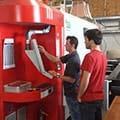Tough Choices for Tough Times
Ask any metal fabrication shop owner if times are tough, and the answer will be the same: “They could certainly be better.” Invent a time machine and visit any fab shop in any age, whether it be during a recession, a depression, or in times of peace and prosperity, and you’ll likely be told the same thing. No matter how successful a shop is, ready cash will always seem to be in short supply.
Stretching a fabrication shop budget regardless of the current economic outlook should be a high priority for any owner or manager who wants to weather any financial hiccups that might hit his or her establishment. Planning various strategies to make the money go further should be outlined for each aspect of the company, carefully considering every possible scenario, with a willingness to make hard choices as needed to keep the business in the black.
The suggestions presented here will hopefully get the ball rolling to help mitigate potential monetary catastrophes down the road.
Machinery Purchasing Costs
- Shopping sales isn’t just for your weekly groceries or next TV set—watch for specials from local machinery dealers.
- Finance wisely through a trusted source with low interest rates.
- Consider leasing machines if your situation warrants it.
- Buy quality used equipment, especially if it won’t be a frequently operated machine.
- Be willing to farm out work to other shops if you can’t justify purchasing a machine that will usually be sitting idle until specific tasks arise.
- Work with dealers who take trade-ins.
- Be aware of the depreciation of your current machines and be prepared to sell or trade them as the market dictates.
Machinery Operating Costs
- You’re not a tree-hugger if you buy a green machine—you are a wise consumer with concern for your budget if you buy machines that use less power than their predecessors to do the same job.
- Be sure that electrical systems are powered down on machines that won’t be in use for an extended period.
- Shop smart on consumables, buying in bulk as needed to keep long-term costs down.
- Buy quality tooling that won’t wear out as easily, even though it will cost more.
- Partner with a steel service center to get the best prices on bulk metal blanks for your large projects and see if they can store it for you and deliver as needed.
- Make sure that machine operators and other shop personnel have other projects they can profitably move to when a machine is going to be sitting idle.
Machinery Maintenance Costs
- Require that operators and shop personnel follow all schedule maintenance on each machine, even if they don’t think it’s necessary. Put serious penalties in place to make sure they don’t put the equipment in jeopardy through their neglect.
- Don’t scrimp on service. Your people might be able to handle a repair on their own but call in a professional when in doubt to prevent further damage.
- Consider buying a maintenance agreement for each major piece of equipment from a qualified machinery service provider. The upfront costs will eventually save you far more than repairs will should the equipment fail.
- Schedule planned maintenance carefully during downtime between major jobs.
Personnel Costs
- Your people are your greatest resource. Treat them that way. Disgruntled employees can eventually cost you quite a bit through lack of productivity, time spent in hiring replacements, and even business lost through damage to your reputation in the local market.
- Cross-train your shop staff so that everyone has someone else who can cover their job should they be unexpectedly absent.
- Give your employees a sense of buy-in by involving them in aspects of planning how your operation will be run moving forward. Not only will it breed staff loyalty, but you might get some really good ideas in the process.
Overhead Costs
- Take care of the space in which your operation resides. Make sure your property payments are responsibly handled and look for ways to cut back on wasted costs for utilities.
- Get expert help on calculating and paying all taxes and insurance for the building and the equipment.
- Make room in the shop for new equipment or to improve workflow by selling or trading unused machines.
Cash Flow
- Be willing to raise your prices for your services, but always give special discounts to your best customers to keep them loyal. “Our prices have gone up 20%, but we appreciate your continual business, so we are giving you an ongoing 20% discount, so you won’t be paying anything additional.”
- Improve your collections processes to get the money you are owed paid to you faster. Weekly review your receivables and look for ways of encouraging cooperation among your hard luck cases. For customers who are far behind, see if you can get them on a payment plan that is more frequent but for smaller amounts that they might be able to be comfortable making.
- Meet with your staff and decide which things are needs and which are wants. Employees may be willing to forgo certain luxuries if other expectations are met (such as keeping a regular, anticipated employee party intact).
The Dreaded B-Word
When you first went off on your own, your mom probably told you to make a budget and follow it. While it might have made you cringe back then every time she used that nasty B-word, hopefully the term “budget” is less-distasteful to you now with all the real-world experience—both business and personal—you have under your belt.
There are many aspects to a fab shop budget and countless areas to consider trimming or tightening in the here-and-now to prevent problems later. From auditing to inventory maintenance, from time management to marketing, knowing where to start your process of reining in your spending can seem daunting.
The simple answer is just to start. Anywhere. Pick any section of your budget and just begin working on a sensible approach to being more fiscally responsible. When you have a solution worked out, move on to something else, then keep going.
Budgeting is never fun, but it’s certainly more enjoyable than bankruptcy or business failure. Every small step you make will bring you closer to financial success, so dig into your budgetary practices today and start securing the future of your fab shop.







